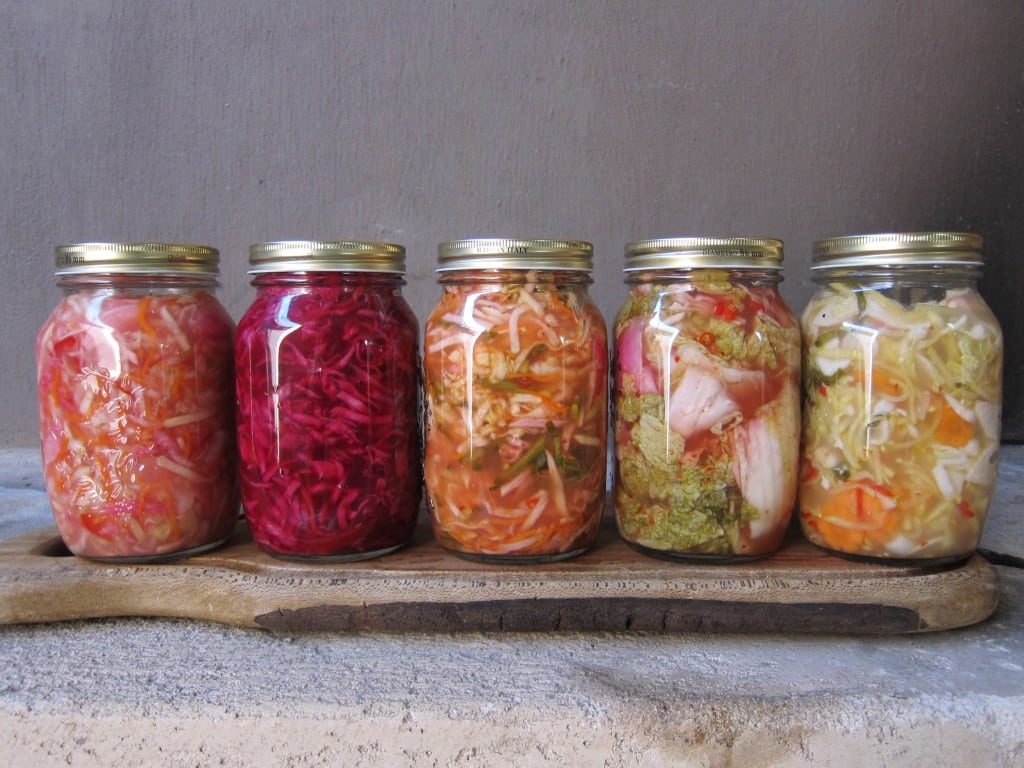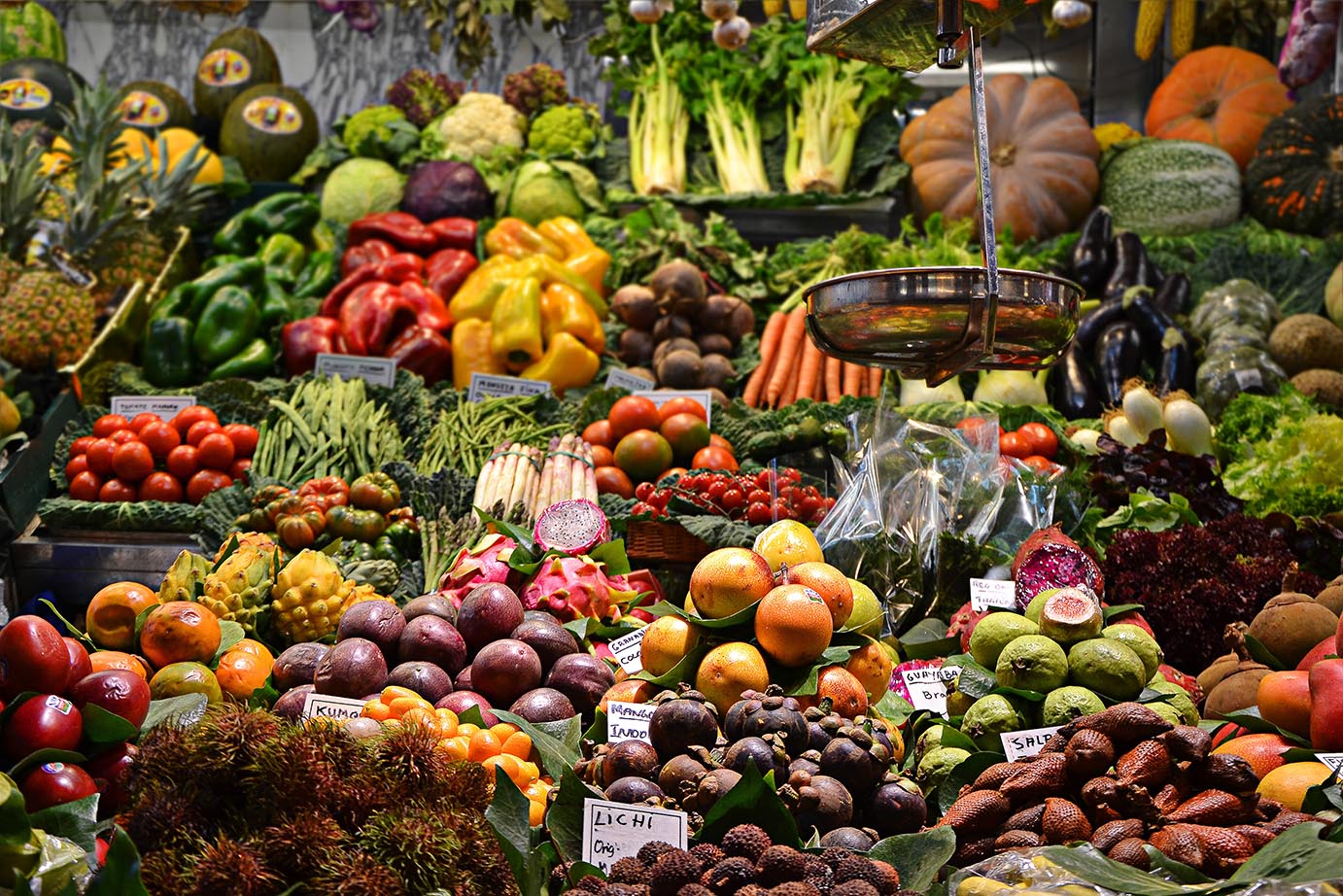All About Gut Health: Why You Need To Add Fermented Foods To Your Diet
good for you and your tummy!
Kira Simpson
There’s a new passenger on the foodie train that’s older than your great grandmother and yet more in trend than your eco-friendly, reusable coffee cup.
You’ll find it gracing the menu of your favourite hipster cafes, on the shelves of most grocery stores, and being sold at farmers markets from Bondi to Byron Bay and beyond.
We’re talking fermented foods.
Image source: Jessica Sepel

" Food fermenting is more than just jamming a bunch of vegetables into a jar and watching them rot."
Back To Basics
Fermentation occurs when bacteria, yeast and microorganisms break down food in an anaerobic environment, creating heat or carbonation as a byproduct.
Just like composting isn’t simply a matter of chucking a bunch of vegetable scraps into your garden and hoping for the best, food fermenting is more than just jamming a bunch of vegetables into a jar and watching them rot. A certain methodology needs to be applied to produce the desired result and to make food that’s safe to eat.
When done right, fermented foods are brimming with probiotics – the good bacteria you want taking up residence in your gut.
While you’re not about to see your avocado on toast being advertised with an optional ‘side of microbes’, you probably have seen or eaten the more popular (and enticing) reincarnations of this ancient form of food preservation such as kimchi or sauerkraut.

A Taste of Our Heritage
Tracing back through history, nearly every traditional culture utilised the power of fermentation in some form. After all, it’s a fantastic preservation technique and without the modern luxury of refrigeration, you can understand why.
Fermented foods are more common than you think. You’ve probably heard of cultured butter, yoghurt, tempeh, kimchi, sauerkraut, kombucha and kefir. Even wine and beer are examples of widely consumed fermented beverages (although clearly not the healthiest kind thanks to the ill effects of alcohol). In fact, most foods can be fermented, including meat.
The downside to this is many commercial products you can buy off the shelf are pasteurised to create a longer shelf life and eliminate any potential unwanted pathogens. They are also often loaded with additional sugars, flavours and emulsifiers to make them more commercially palatable. Unfortunately, this also kills off any of the good bacteria, rendering the product useless if you’re aiming to increase your microbial exposure.

Creator of the online ‘Fermentation Fundamentals‘ course, Sarah Groom, teaches you the specific techniques and tools for fermenting at home.
She encourages people to experiment in their own kitchens and explains, “Creating delicious fermented foods in your own kitchen is actually really simple – and much cheaper than buying them at the store!
Many brands of fermented foods are taking shortcuts in the process, which means your homemade ferments may also be nutritionally superior. Unfortunately, there is a lot of conflicting information out there which can make fermentation seem much more difficult and risky than it really is.
With a little bit of knowledge and the right tools for the job, your homemade ferments will provide you with the full range of probiotic superpowers at a fraction of the price!”
The Wonders of Fermented Food
As researchers start to map the microorganisms found in fermented foods from around the world, studies are also discovering many of their functional properties. These include the prevention of cardiovascular disease, cancer, gastrointestinal disorders, allergic reactions and metabolic syndrome.
In some cases (such as cabbage), fermentation can even enhance the nutrition of a food (turning it into sauerkraut increases the bioavailability of vitamin C). Fermentation also makes it easier for your body to absorb nutrients as the living enzymes essentially predigest the food. This also aids in the digestive process. Some ferments, like Kombucha, are also known as great liver detoxifiers.
Just like we have ancestral lineage, we also have microbial lineage. Bacteria have evolved alongside humans since the dawn of time. And just like our genes can be influenced by our environment, so does our microbiome flux over time, influenced by diet, lifestyle, chemical exposure, medications and even stress.
With the increase of antibiotic use, anti-bacterial soaps, cream and wipes, and quite frankly, a bacteria-phobic mentality, we’re wiping away more than just a few bacteria. Sandor Ellix Katz, author of the popular book, ‘ The Art of Fermentation,’ says, “The problem with killing 99.9 percent of bacteria is that most of them protect us from the few that can make us sick.”
Most modern diets lack in the microbial diversity many of our ancestors experienced living off the land as hunter and gatherers. This is part of the reason why we need to make a concerted effort to consume more fermented foods.

A Microscopic Wonderland
The gut is the epicentre of your body. Science has only just begun to delve into the pandora’s box that is the human microbiome and its role in regulating our immune system and influencing our physical and mental health. A growing body of evidence suggests disruptions to the gut microbiota is associated with “both intestinal and extra-intestinal disorders (source).” These range from inflammatory bowel disease, IBS, coeliac disease and colorectal cancer, to allergies, asthma, cardiovascular disease, diabetes and obesity.
In 2012, the Natioanl Health Institute conducted the Human Microbiome Project in an effort to map the microbiology of the human body. What they discovered was a flourishing ecosystem supporting trillions of microorganisms which outnumber human cells 10 to 1. Dare I say you are more bacteria than you are ‘human’!
The thought of your body being host to such incredible numbers of microorganisms may make some of your stomachs turn. But it’s those microorganisms in your stomach doing all the hard work. They’re essential to human health. Living inside and outside of us, they’re responsible for vital functions, like fighting off harmful pathogens and breaking down nutrients for your cells to utilise.
One of the simplest and most affordable ways you can nurture your gut microbiome is through eating more fermented foods. It’s time to get your ferment on and transform ordinary food into probiotic powerhouses!


